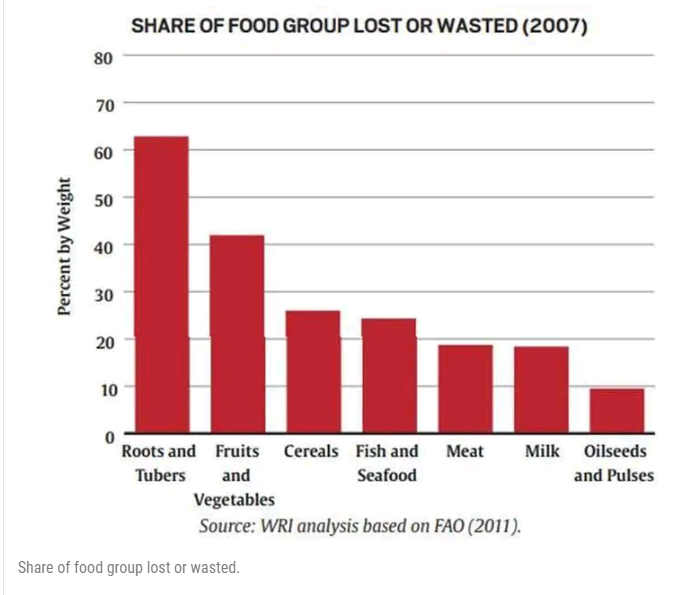Report: Reducing Food Loss and Waste 2019 – Diligent IAS 13/09/2019 – Posted in: Daily News
REDUCING FOOD LOSS AND WASTE
For: Preliminary & Mains
Topics covered: Report – Reducing Food Loss and Waste
News Flash
A new report by the World Resources Institute (WRI) with the support of the Rockefeller Foundation has quantified global food wastage.
- The report titled: “Reducing Food Loss and Waste”.

Reducing Food Loss and Waste
Key Findings
- Nearly one-third of the food that is produced each year goes uneaten, costing the global economy over $940 billion.
- Uneaten food is responsible for emitting about 8% of planet-warming greenhouse gases into the atmosphere.
- One in every nine-person in the world is undernourished.
- 50% of the world’s population now lives in a country that has set an explicit, public target aligned with SDG 12.3
Referring to India
- Food wastage in India is at an all-time high.
- In an assessment of 45 different crops over 100 regions of India found that poor storage was at the centre of crop losses.
- It identifies the lack of cold chain infrastructure as one of the major contributors for wastage of food material.
- A report in 2015 has estimated that food loss resulted in economic losses of $15 billion for the Indian economy in the FY 2012-13.
Global Action Agenda
- In a plan to control the global wastage of food, the report identifies three measures: The first being, “Target-Measure-Act”, followed by a “To-do list” and “10 scaling interventions”.
- Other actions include developing national strategies for food loss and waste reduction, creating national public-private partnerships, launch supply chain initiatives, reducing small-holder losses and shifting consumer social norms.
Conclusion
- The report states that curbing global food wastage would result in lower GHG emissions.
- It would also avoid the need to convert an area of natural ecosystems, into agricultural land between 2010 and 2050.
- Lowering global food wastage would also close the gap between food needed in 2050 and food available in 2010 by over 20%.
Source: Indian Express
READ MORE DAILY NEWS
- Project REPLAN (Reducing Plastic from Nature)
- Pobitora Wildlife Sanctuary (Mini Kaziranga)
- Rashtriya Poshan Maah
You are on the Best Online IAS preparation platform. You are learning under experts.
We are present on Facebook- Diligent IAS, LinkedIn- Diligent IAS, YouTube- Diligent IAS, Instagram- Diligent IAS. Get in touch with us
